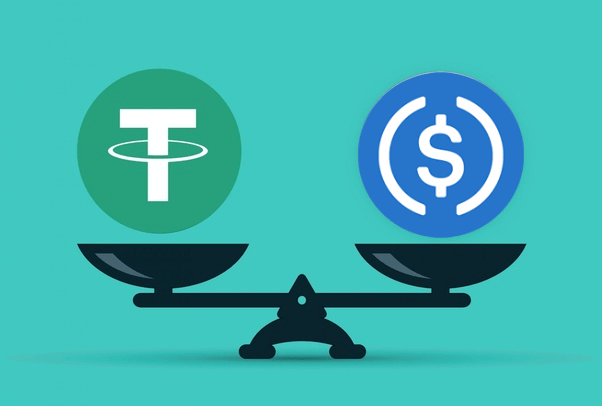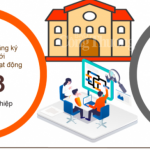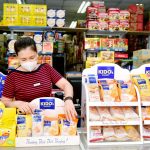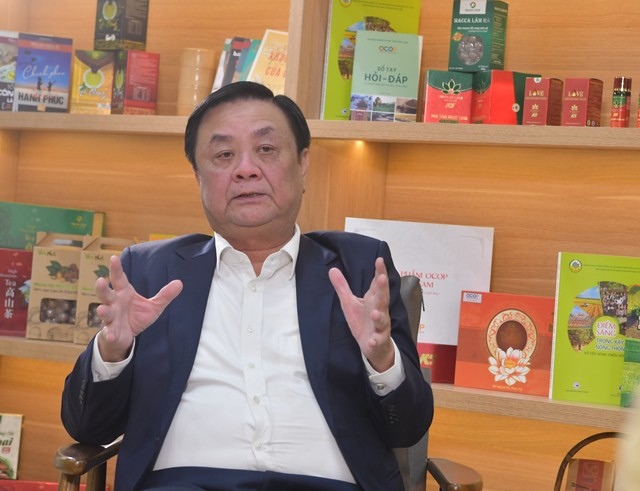
Minister Le Minh Hoan believes that the agricultural economic thinking needs to be further spread – Photo: Nguyen Giang |
According to Minister Le Minh Hoan, the Minister of Agriculture and Rural Development, agriculture is always a pillar in the context of a difficult economy. However, the industry has faced and will continue to face the “3 transformations”: Climate change, market fluctuations, and shifts in global consumption trends towards sustainability.
Therefore, based on the practices, the Ministry of Agriculture and Rural Development has persistently implemented long-term strategies while flexibly handling situations and managing synchronously in the short term.
Vietnam is a transparent, responsible, and sustainable agricultural producing country.
-Reporter: Mr. Minister, 2023 concluded with significant achievements that the entire industry has achieved, with agricultural exports reaching over USD 53 billion and the trade surplus exceeding USD 11 billion – the highest level in recent years. The role and position of agriculture as a “supporting pillar” are increasingly affirmed. What would the Minister like to share with the press in the new year?
-Minister Le Minh Hoan: Agriculture has been considered a bright spot in the economic development in 2023. To achieve these results, it may be the success of activating economic thinking and market thinking.
In the past, the agricultural sector produced the most output, but sometimes farmers did not benefit from the high production. The price of agricultural products fluctuated, and sometimes it would be better to produce less in order to gain more. However, without a market, production cannot be stimulated.
The market is becoming increasingly competitive, and we need to not only enter the market but also understand the characteristics of each market. Some agricultural products are consumed in China but not in Europe. Or some products are sold in the US but not in Europe… In the past, we considered the market only as a place of trade, but now the market is also a culture of consumption. Even the 27 European countries do not have the same consumption trends.
Therefore, when opening the market, it is important to transfer the production raw materials to farmers, and it is the responsibility of the Ministry of Agriculture and Rural Development to connect market standards to the production raw materials.
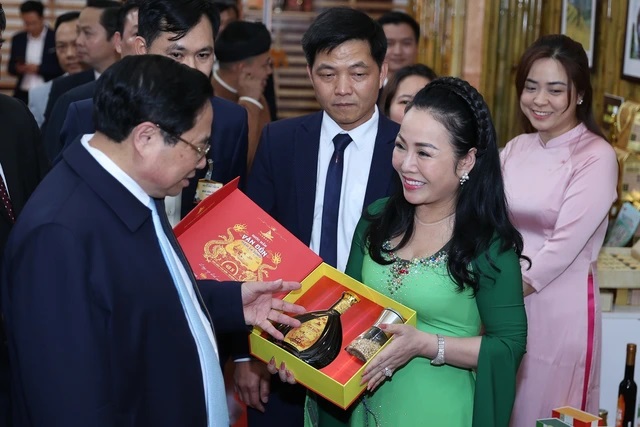 Prime Minister Pham Minh Chinh visits exemplary agricultural products at the conference reviewing the agriculture and rural development sector in 2023. Photo: Nguyen Giang
|
For example, Vietnamese rice is brought to the Japanese and EU markets. Even China is no longer an easy market, as it tightens technological barriers and food safety regulations.
The market is not only about supply and demand but also about diplomacy. Therefore, the achievements of the agricultural sector are images of the country, and as the image of the country improves, confidence in Vietnamese agricultural products also increases.
The strategy of the Party and the State identifies agricultural products as the national image and conveys to the world with the message: Vietnam is a transparent, responsible, and sustainable agricultural producing country.
The agriculture, farmers, and rural areas are not the responsibility of any individual but for everyone. Each person, through their profession, can contribute to the development of agriculture, farmers, and rural areas according to the Party’s Resolution.
The media has the magical power of guiding social consciousness for change. One thing that I often say is that all changes are difficult, but if we do not change, it will be even more difficult.
We often talk too much about the cost of change, but we rarely consider the price we have to pay if we do not change or if we change slowly.
The world is not as stagnant as we think. People no longer buy just a product; they buy the way the product is created; they buy the story of how the farmers produce it, of an industry of a country.
Why don’t they buy their own fish if they violate IUU (illegal, unreported, and unregulated fishing)? That is because people buy the way the product is created.
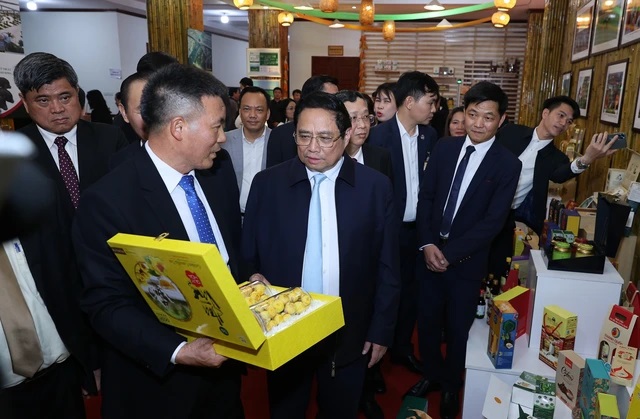 The Prime Minister and delegates visit booths displaying typical agricultural products. Photo: Nguyen Giang
|
We used to often think that if we want to develop, we have to make trade-offs. If we want growth, we have to make sacrifices. But now we need to take green actions to produce green products, balancing development and ecological preservation, natural environments.
– Miss Nguyen: So how should we understand and implement the green thinking in agricultural development in the coming period?
– Minister Le Minh Hoan: We say green thinking, but perhaps we don’t really understand what it means. The word “green” comes after “brown”. Previously, we talked about a “brown” economy – an economy that distorts the environment for development purposes.
In order to serve human life, we have exploited and thought that by doing so, it will sustain human life, without realizing that we are creating distortions in the environment, bio diversity.
We forget that the environment can exist without humans, but humans cannot exist without a green environment surrounding them, providing oxygen to breathe and shade for us to enjoy. Therefore, “green” is about balancing development and ecological preservation, natural environments.
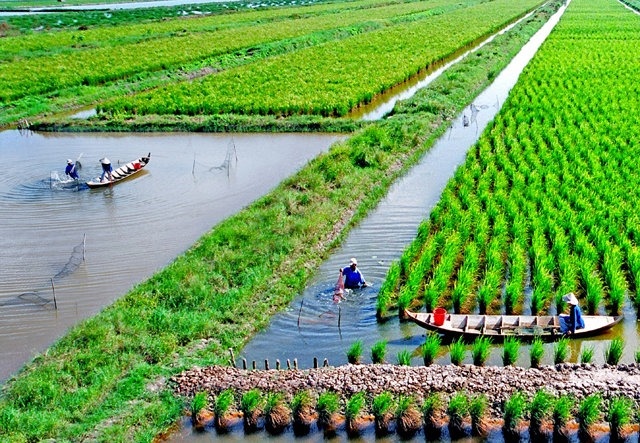 Shrimp and rice models in the Mekong Delta |
We used to think that in order to develop, we have to sacrifice. In order to grow, we have to sacrifice. However, now we need to take green actions and have a green lifestyle. This needs to be incorporated into the education system, starting from preschools. This thinking will train us to have suitable occupations and create green products that contribute to society.
Therefore, we need education about nature, the environment, and responsibility for protecting the environment as a natural reflex.
However, environmental education is just beginning, so sometimes when talking about this issue, many people, especially farmers, think it is too far-fetched or too vague. They do not understand and do not believe that producing more can cause climate change. Therefore, the role of the media is very important, and we need to educate gradually, not saying “green” this year and “green” next year.
Vietnam is a developing country, going hand in hand with the world, and the world has started to provide resources to Vietnam to protect the environment and achieve “green” growth. However, no matter how much funding we receive, if Vietnam cannot overcome the coping position, it will not be successful.
We need to see that sooner or later, we must innovate, “greenize”, the country that leads will be successful first. The European Commission highly appreciates Vietnam because Vietnam proactively discussed with the EU on this issue. The European Commission appreciates this action and evaluates Vietnam as a pioneering country in implementing these commitments, and they will have obligations with us to restructure the green market. As I said above, the global trend towards greenization is irreversible.
– With the results achieved in 2023, what orientation will the Ministry have for development in 2024, Minister?
– The agricultural sector will spread deep thinking about agricultural economics further, and the industry is making efforts to shift from agricultural production thinking to agricultural economic thinking. The industry will also research solutions to create more value per area of agriculture. Along with that, agriculture is not only about agriculture but also about integrating many new industries and areas to create value. At the same time, it will create space for agricultural development.
For example, agricultural tourism in Taiwan (China) has proven that the income of farmers increased by 5-10 times. Or the flower village in Sa Dec, Dong Thap, previously only sold flowers, but now they narrow down production to create additional stopping points for tourists. Therefore, intangible things that have not been exploited have more value than tangible ones.
About creating value spaces for agriculture, phrases like agricultural tourism, agricultural entertainment, agricultural fashion, high-tech agriculture, smart agriculture, etc., the thinking needs to change every year, to think for 5 years from now, even 10 years later…
|
According to Minister Le Minh Hoan, whether the market is domestic or overseas, it is still a market. How to consume agricultural products for farmers at the optimal price, farmers selling at a price of 10 dong minus the production cost of 9 dong, leaving a 1 dong profit is the essence of the economy. The economy is about subtracting, not just about outputs. Measuring the income of farmers is what matters. |
Van Duẩn

































